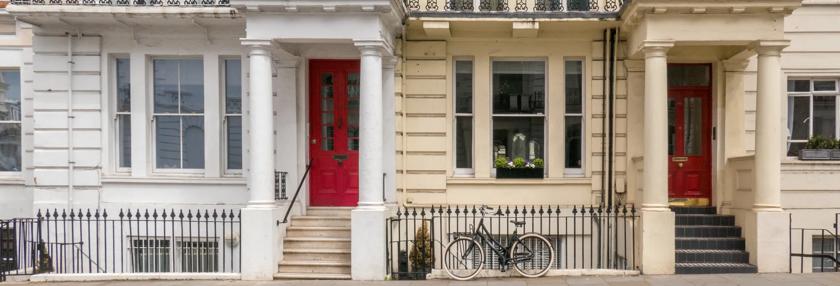- News
- Investing
Chancellor Rachel Reeves has announced a new tax on high-value homes in England, as part of her Autumn Budget. The annual levy, which will cost up to £7,500, will take effect from April 2028.

At a glance
- A high value council tax surcharge – dubbed a “mansion tax” - will apply to homes valued at £2 million or more. The annual surcharge will cost between £2,500 and £7,500, depending on the value of the property.
- The government says fewer than 1% of properties will pay the tax.1
- It estimates that the levy will raise about £430 million of revenue per year from 2028.2
How will the mansion tax work?
After years of being mulled over by political parties – and months of speculation leading up to the Autumn Budget - the chancellor has confirmed that she will impose a mansion tax on properties worth £2 million or more.
Reeves said in her Budget speech that she wanted to take “further steps to deal with a longstanding source of wealth inequality” and gave the example of a band D home in Darlington paying just under £2,400 in council tax, which is nearly £300 more than a £10 million mansion in Mayfair.
To deal with this, the government is introducing a “high value council tax surcharge” on properties worth £2 million or more from 1 April 2028.
The charging structure includes four thresholds, meaning homeowners with the most expensive properties will pay the most.
| Threshold (£m) | Rate (£) |
| £2.0-2.5 | £2,500 |
| £2.5-3.5 | £3,500 |
| £3.5-5.0 | £5,000 |
| £5+ | £7,500 |
Source: https://www.gov.uk/government/publications/high-value-council-tax-surch…
So, someone with a property worth £2.2 million will pay £2,500 on top of their usual council tax bill. A homeowner with a property worth £6 million will pay £7,500. It is worth considering that these charges will increase in line with CPI inflation each year from 2029-30 onwards, so these rates will only apply for one tax year before rising.
Who will be affected?
Homeowners, rather than occupiers, will be liable to pay the mansion tax. The levy will be paid on top of existing council tax bills.
In order to identify properties worth £2 million or more, the Valuation Office will “conduct a targeted valuation exercise” next year, according to the Treasury.
This means that homes worth £2 million or more in 2026 will then pay the surcharge from April 2028. Revaluations will be conducted every five years.
The surcharge will be collected by local authorities on behalf of central government. In other words, the cash will end up in the coffers of the Treasury, not with local councils.
The government estimates that fewer than 1% of properties in England are expected to be above the £2 million threshold.
However, this is likely to be of little consolation to those set to be caught by the new tax, who are expected to be predominantly in London and the South East where house prices are typically the most expensive.
Secondly, over time more people are likely to find themselves at risk of the mansion tax if house prices continue to rise. According to property portal Rightmove, "the number of homes for sale priced at a million pounds or more has doubled (+103%) across Great Britain over the last six years".3
What happens if I can’t pay the levy?
The new tax could hurt families already struggling with big mortgage payments and a high cost of living, and older homeowners who may be asset-rich and cash-poor and have seen their house appreciate in value while their income has reduced or gone in the opposite direction.
The levy could lead to downsizing and a glut of properties worth more than £2 million put up for sale in a similar time frame.
The government says it will ensure a support scheme is in place for those who may struggle to pay the charge. A public consultation on details relating to the surcharge – including how a support scheme would work - will be held early next year. There are likely to be options for homeowners to defer payment until they sell the home or upon death, if they cannot afford to pay.
Did you know?
Political parties have often considered imposing a mansion tax in different forms. It featured in Labour’s 2015 election manifesto (under leader Ed Miliband) and was later championed by Jeremy Corbyn. It was also in the Liberal Democrats’ 2010 general election manifesto.
Plan early for the mansion tax
An extra tax bill to pay is rarely welcome. If you think you may be affected by the mansion tax, it’s wise to start planning now so you don’t get caught out in 2028. A financial adviser can help you manage your savings and assets tax-efficiently, making you more resilient to face unexpected tax demands in future.
With these announcements adding yet more complexity to financial matters, the importance – and value – of financial advice has never been as clear. Find a financial adviser today.
The levels and bases of taxation and reliefs from taxation can change at any time. Tax relief is dependent on individual circumstances.
Sources
1Gov UK - Policy Paper, Budget 2025 - Under 3.2, ‘Taxation of wealth’ - 26 November 2025
2High Value Council Tax Surcharge - 26 November 2025
3Number of million-pound homes for sale doubles since 2019 - Rightmove Press Centre – 19 June 2025
Most recent articles



